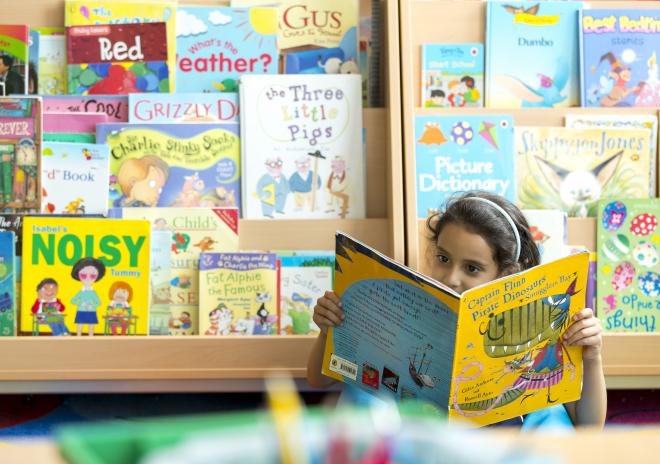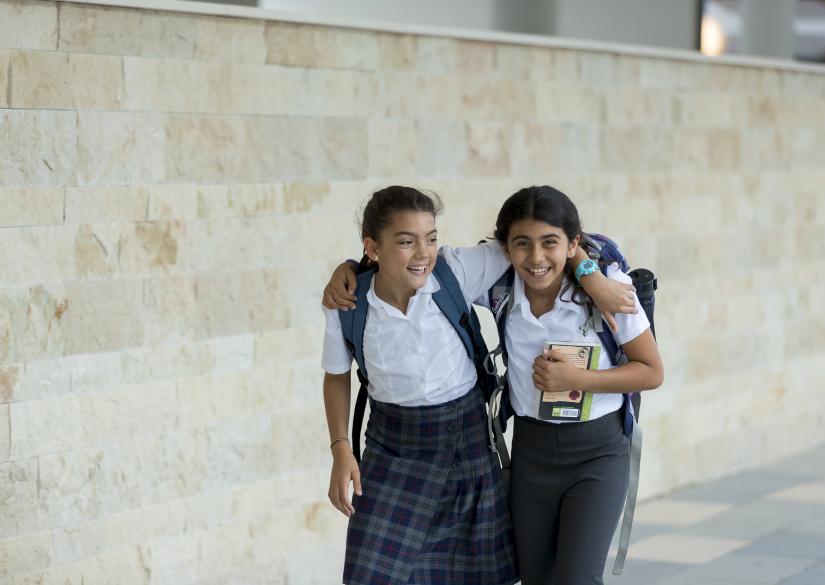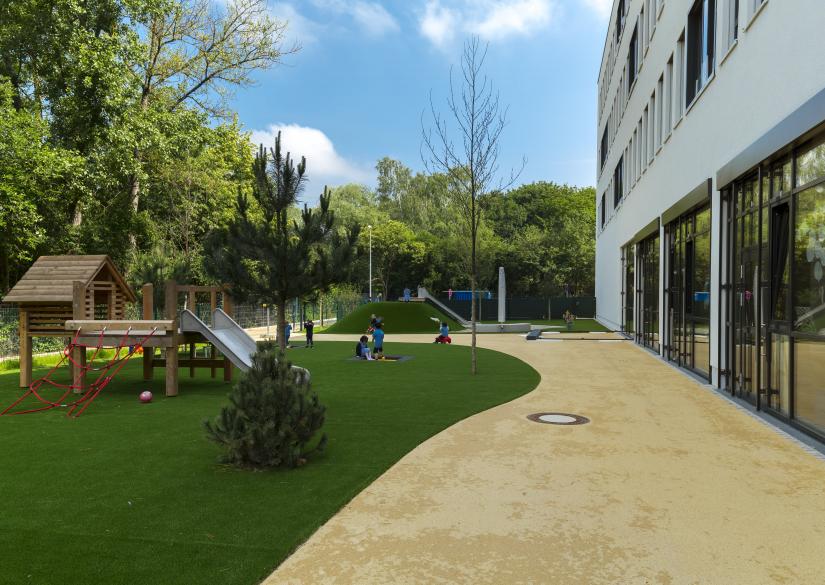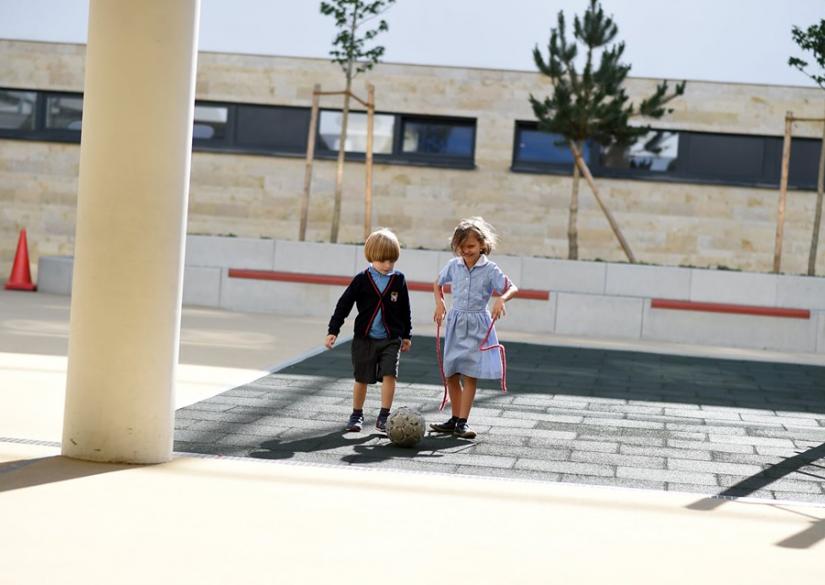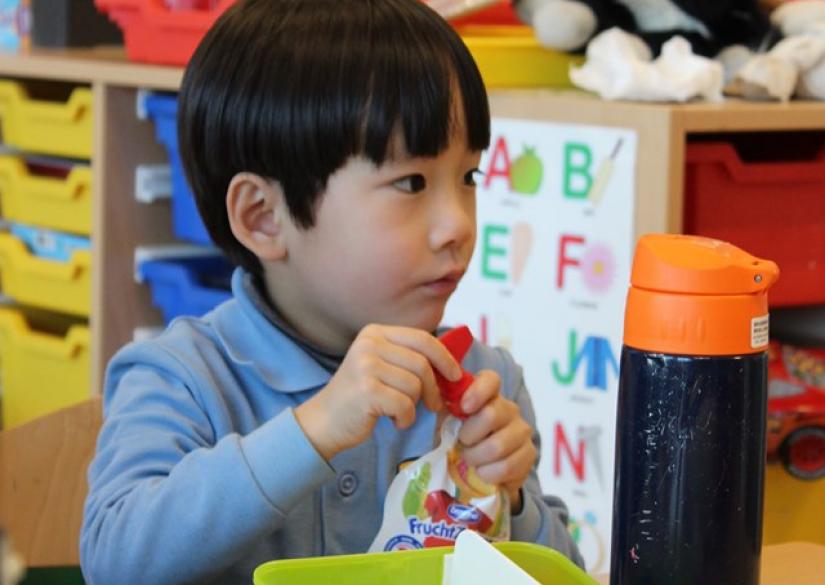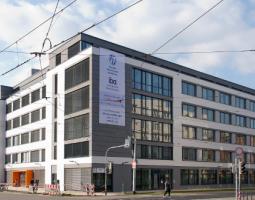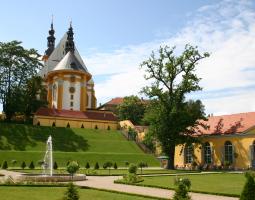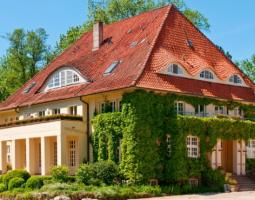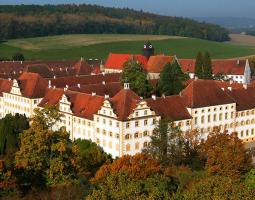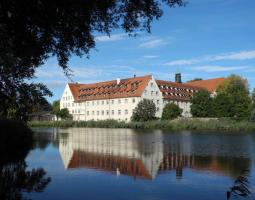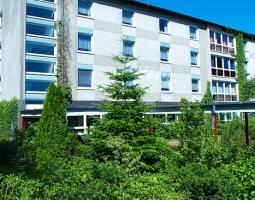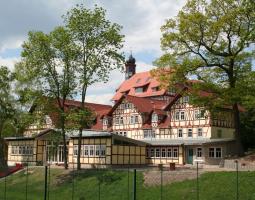St. George's School Munich
Programs and prices, tuition fees in St. George's School Munich
The school provides elementary studying from the age of 7. The curriculum is formed on the basis of game elements, the socialization of children in small classes, fostering respect for comrades. At St George's School in Munich, the educational process is conducted in English and meets the requirements of the British educational system.
From 7 to 11 years (junior class) teachers tend to develop individual abilities and interests of children, to bring them good manners and deliver the joy of learning. Children learn the basics of the natural sciences, mathematics and computer science. Attention is paid to English and German languages, studying history and geography. Every week there are hours for sports, dancing, drawing, music, French and various kinds of art.
In junior clubs, foreign students can learn caylis (Celtic dances) or play musical instruments, master gardening, sewing, yoga, acting, rules of debate or information technology.
The school actively interacts with parents of children, invites them to joint evenings, holidays, barbecues, exhibitions.
In the 8-9 grades, the students of St George'sSchool undergo a course of subjects that allow them to obtain a certificate of compulsory secondary education. To do this, it is necessary to master mathematics, English and a foreign language in a compulsory order for two years and select subjects for further study. The GCSE certificate can specify up to 5 preferred sciences and 3 mandatory.
In classrooms and laboratory classrooms, students learn history, chemistry, English literature, physics, German language and biology. As a foreign language it is possible to study Spanish or French. Acadmemory studies music, ІТ, geography and a complex of subjects of the sphere of art.
After passing the unified national examination for the classical requirements of British education, students receive the GCSE certificate and switch to pre-university programs.
The main advantage of entering the IB program is the opportunity to equate the national education systems of any country of the world to the British system. For admission, you need a high level of English (German) language proficiency and a focus on higher education in the future.
The IB program was developed in Switzerland more than 50 years ago and is now the most sought-after among entrants. In addition to social adaptation and accustoming to another system of education, the important advantage of IB was the orientation toward personal achievements of schoolchildren, the stimulation of independence and healthy ambitions.
Academic preparation implies the passage of several mandatory courses of general orientation:
- Methods of studying science and conducting research (TIC);
- Course creativity + activity (CAS);
- Writing a creative essay.
All subjects are studied on two levels:
- Standard (SL);
- Deepened (HL).
Of the six items, half must be passed more unfolded.
The initial level of knowledge (A1, A2) is acceptable for English and German. A more complex level (B) is supposed to be studied in French and German, and for other subjects, students can choose SL or HL independently. The school provides for an intensive mastering of physics, mathematics, economics, a historical complex of subjects, chemistry, biology, and geography. For creative students, a block of knowledge on visual art has been developed, including practical lessons.
An important aspect of school life at St George's School is considered to be extra-curricular activities and cultural leisure for children. In addition to sports for the school program, children should choose additionally a section on interests (running, fitness, tennis, football) and devote their favorite sport several hours a week. Competitions are an integral part of school culture.
The school encourages work in thematic circles. Clubs of languages, sports leadership, chess, computer, mathematical and biological constantly operate. After lessons if desired, students can visit 1-3 mugs daily. School children publish their own newspaper, conduct Internet broadcasting. Drama and music clubs are popular among children.
Foundation Stage, Kindergarten
- Age — from two to five years old,
- Duration of study — four years.
The preparatory stage covers preschool groups for children aged 2 to 5 years. In these early years, students are provided with a wide range of learning opportunities: from a friendly environment in small classes and individual attention to each pupil to a diverse curriculum including games and exploring the world around them.
The curriculum is based on the international Early Years Foundation Stage program: it focuses on developing key skills through play, research and communication, giving children the opportunity to focus on their interests, abilities and strengths without overloading them with academic rigor. Over several years they will study seven main areas, acquiring important skills:
- Literacy,
- Communication, language,
- Mathematics,
- Physical development,
- Understanding the world,
- Personal, social and emotional development,
- Expressive arts, design.
Extracurricular activities enrich the educational experience, offering children to engage in crafts, active games, drawing, singing and other activities for comprehensive development and discovering individual talents.
Description of St. George's School Munich
- Year of foundation: 2013
- Location: Germany, Munich
- Age of students: 2-18 years
- Type of education: mixed
- Programs: Primary, Secondary School, IB, GCSE
- Accomodation: day school.
St. George's School Munich is a prestigious British school in Munich. The educational institution is located in the infrastructurally developed area of the city. In walking distance from the school is a major traffic intersection. The convenient location of a private German school allows students to combine study with a cognitive holiday in one of Germany's most interesting cities, a multifaceted Munich.
The English-language school is an excellent choice for those who want to get an education in Germany that meets international standards. The school offers a wide range of school programs. Learn here is comfortable and interesting. The school has a modern material base, it has created excellent conditions for the preparation of foreign students. Highly qualified teaching staff is another feature of the language center. At school, every child can count on comprehensive help and support from the teacher-curator.
The programs envisage not only academic preparation of students. They offer a wide range of extra-curricular activities and electives. Junior students can study in literary (reading), dance, theater, music clubs. Also for them are open clubs of debate, yoga, computer science, sewing, foreign language. For students of secondary, senior school, there are subject circles (physical, chemical, mathematical, geographical, literary, linguistic). Students can also play sports, dance, chess, music (playing instruments, vocals).
Educational process
Academic disciplines are taught in English. German is compulsory until the age of 16, after which it becomes an optional subject. In addition to these two languages, students can choose to include French or Spanish in their schedule. All language courses are conducted by native speakers – experienced teachers with a long history of working with international students.
The school has a career office that helps high school students prepare for admission to the university of their choice: department staff organize individual meetings with students and their families, classes to develop important academic skills, and offer internships to gain practical experience.
Faculties and colleges
Here, teaching is organized at all stages of school education: preparatory, primary, secondary and senior. Education is based on an internationally recognized program and the National Curriculum for England, Wales and Northern Ireland.
Things to know about
School uniform is a mandatory aspect of the educational process — all students from primary to senior school wear clothing of the same color with St. George’s The British International School distinguishing features. School uniform unites the student community, creating an atmosphere of academic rigor.
Accommodation, meals, prices
There is a daytime education format at St. George School Munich, children need to live with their parents or guardians.
Subjects and sports
Activities St. George's School Munich
A House system is in place at the school, which involves dividing students of all ages into four large groups, each with a distinctive symbol — an emblem featuring a mascot. The House system fosters a sense of belonging, allows students to develop leadership skills, learn teamwork, and gain experience in both victories and defeats in a friendly atmosphere. Throughout the year, Houses compete against each other in sports competitions, creative contests, and research projects, earning points. At the end of the year, a large-scale event is held where the House with the most points is awarded, as well as particularly outstanding students.
Sports, creativity, research activities, charity work, and other extracurricular areas are reflected in thematic clubs, sections, and groups — students can join one or more to develop existing skills and learn new interesting hobbies. Teachers of creative disciplines conduct classes not only in groups but also offer individual lessons in playing musical instruments and vocals. Annually, pupils of creative disciplines participate in numerous concerts and celebrations of important dates.
The campus is always lively: academic studies, collective events, seminars with guest speakers, and many other activities diversify the student experience. Regular trips complement school life and help students connect learning to everyday experiences. Excursions around the region and outdoor classes allow pupils to strengthen friendships, study culture, history, and natural attractions. In addition to day trips, annual events are organized for students in grades 3-13, including accommodation, ski trips, and camping.
Middle school students have a slightly wider range of activities that support their academic and extracurricular development: language exchanges, expeditions based on the Duke of Edinburgh's Award, subject-specific excursions, and career events at local and national universities.
Advantages
- St. George's School Munich is distinguished by the high quality of academic preparation of students. The average score for IB in the school is 35 at the global level of 29.
- The school has created an intercultural multinational environment: representatives of more than 35 nationalities are studied here. It promotes development of students' communication skills, allows children to get new friends from different countries of the world, get acquainted with the culture, traditions of other peoples.
- The educational process at the school is designed in such a way that students can quickly adapt to the new educational environment.
- The school pays much attention to the creative, sporting development of children. The bias is on music and team games. Mugs and sections are available to all comers.
Facilities and equipment at St. George's School Munich
The school has everything necessary for effective and comfortable learning. Modern lecture classes are equipped here, there are scientific laboratories, a computer center with access to the Internet, a library with a wide range of printed and electronic publications. To relax in breaks between classes students can in the spacious hall.
Special classrooms, halls are provided for electives. The sports infrastructure is represented by an athletic hall, playgrounds on the school grounds.
Admission dates and extra charges
Extra charges:
- Registration fee (one time);
- Fully refundable deposit for boarding school (only not for EU citizens);
- One-time fee for schools;
- Curator;
- Educational materials;
- Flight.
Extras:
- Application fee 4000 EUR
- Registration fee (for a programme/course) 750 EUR
Enrolment process
Applications are accepted year-round. Before submitting an application, employees recommend visiting the campus to meet the teachers, tour the grounds and ask any questions you may have; your child will be able to spend a trial day in class. If a visit to the school grounds is not possible, candidate families can contact the admissions committee online.
Candidates go through several registration stages:
- Submitting an application and required documents,
- Taking a test to determine existing knowledge,
- Receiving an official invitation to enroll,
- Making a deposit to reserve a place in the class,
- Starting education.
Enrolment statistics
Admission is based on the results of entrance examinations, as existing knowledge and proficiency in English are important for further academic progress.
Perspectives
High school students receive an internationally recognized diploma that opens doors to many leading universities around the world, enrolling in educational institutions in Great Britain, Germany, the USA and other countries.
Entry requirements, how to apply, what is required to enrol
International applicants need to have a complete set of personal documents: passport, health insurance, visa or residence permit for Germany. Academic transcripts from the previous place of study should be attached to the application, which will demonstrate current academic performance and the knowledge base of the future student. Proficiency in English is important for students applying to middle and high school — the admissions committee conducts testing and offers additional language support if needed.
Scholarships St. George's School Munich
Each year, a limited number of students receive partial or full scholarships. Important criteria for financial support include the family's unstable financial situation and the student’s academic success.
Institution on the map
Residence permits, citizenship and other services
- Guardianship services during the studies
- Student supervision
Review about St. George's School Munich
My father and mother now work in Munich (Germany), and they want me studying in the German school.
Now I study in St. George School, and I really like it here. The school has very good teachers, who are always ready to help. Still very good and delicious food. I can work in a computer class and even started to learn programming. Found many new friends. True, I miss home a little, but my dad says that I will quickly get used to it. They really want everything to be fine.
Recommendations on when to apply
| Language courses, schools and children's language camps | Primary and secondary education - private schools | Preparation programmes for entering universities - higher education | Higher education (after completing accredited programs A-level, IB, High School) - Bachelor, Master, MBA |
| - we recommend to apply 6-9 months before the start of the course (some camps and schools offer discounts for early booking or for lengthy study programs) - there are some very popular and high demand children's camps, where the applications need to be submitted 1 year in advance (in particular Switzerland , Great Britain , USA , Canada , Austria) | - we recommend to apply one year before the start of the training program, - some schools have a specific time frame (September-November - please specify an individual school) - some schools require tests in several stages (UKISET, internal tests of the school: English, mathematics, logics, subjects, interview, some require a personal visit) | - we recommend to apply one year before the start of the program, - for Foundation and Pathway programs, IELTS and TOEFL certificates are usually required, respectively | - recommended submission one year before the start of the program, - the deadline normally closes in January, for TOP HEIs and, as a rule, in March in other universities - for a bachelor, a Foundation or Pathway preparatory program a completed A-level, IB, High School + IELTS / TOEFL are required - for Masters you need a graduated higher education, in some cases you need a pre-Masters program - MBA requires completed higher education, work experience preferably at least 2-3 years, etc. |




